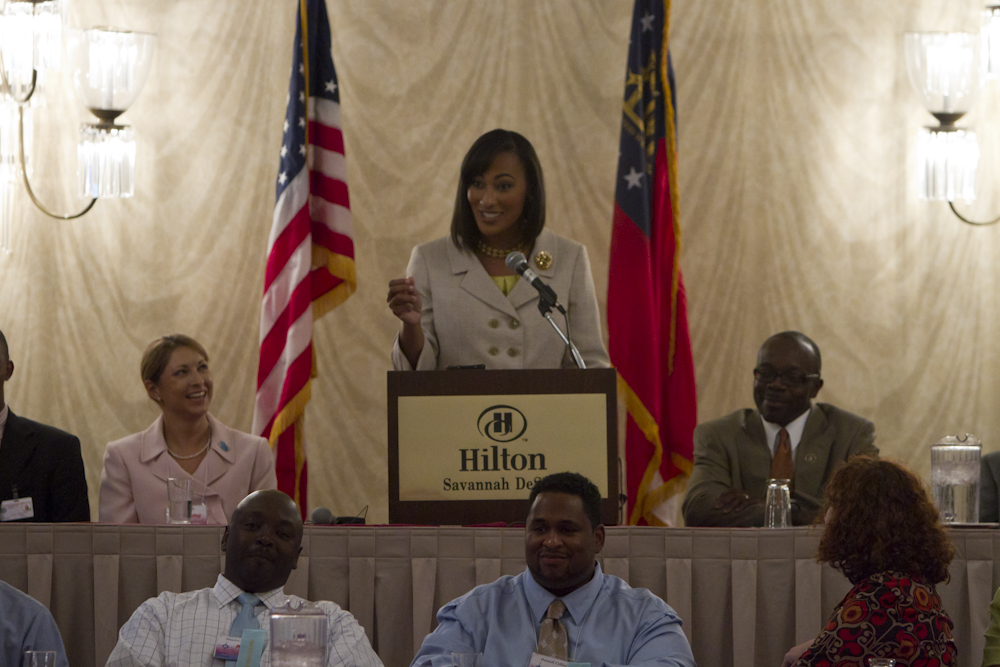
Georgia’s Department of Juvenile Justice Commissioner Amy Howell isn’t ashamed to admit she was a bit of a snotty teen. She had a mean eye-roll and attitude to boot, she has said, and really didn’t see a life past the age of 25. That is until until those in her life who cared about her most, finally got through to her.
When it comes to juvenile justice and heading the DJJ, Howell takes a similar approach. For her it’s personal.
“The goal has to be on the lasting success for young people,” she said. “If we want to make sure they don’t recidivate we need to make sure we’re giving them, and setting them up in the community with, the opportunities for that lasting success.”
Howell recently told a contingent of Georgia YDC Directors that while she considers the juvenile facilities are ‘their house,’ the kids incarcerated are her kids – and she expects them to be taken care of while there.
“My Kids.”
That’s how Howell refers to all of the some 22,000 ‘and two’ kids that are overseen by Georgia’s DJJ: 20,000 kids under community supervision, 2,000 in incarceration and the two in her own home.
“I genuinely want what is best for the young people in our care, so how can you not make it personal?” Howell said. “I believe that nobody gets anywhere alone and as adults we have this tremendous opportunity to change the direction of the young people that we’re working with. Their future isn’t cast in stone yet for many of them.”
A self-described realist, Howell didn’t sugarcoat her speech opening the Georgia Juvenile Service Association’s (GJSA) 40th Training Summit this week.
 While commending the work that has been done in the field, Howell pushed for a continual pursuit of excellence, adding that she understood the added strain of dealing with a larger number of kids on a tight budget.
While commending the work that has been done in the field, Howell pushed for a continual pursuit of excellence, adding that she understood the added strain of dealing with a larger number of kids on a tight budget.
“As an agency I think the challenge ahead of us is redistributing our operations based on where we are from a budgetary stand point right now so that they meet the needs of the communities we serve,” she said.
As the only professional organization for youth workers in the state, the GJSA Training Summit marked Howell’s first opportunity since taking office in early 2011 to address such a large cross-section of the field and DJJ employees.
“I expect you to take pride in what you do,” she said. “You’re in this field not because it’s just a job, not because you’re getting rich, but because this is a calling.”
While the GJSA is primed on expanding its membership base into other areas of juvenile justice and youth services, DJJ employees still comprise a large portion of its core.
Photos by Clay Duda/JJIE.org.